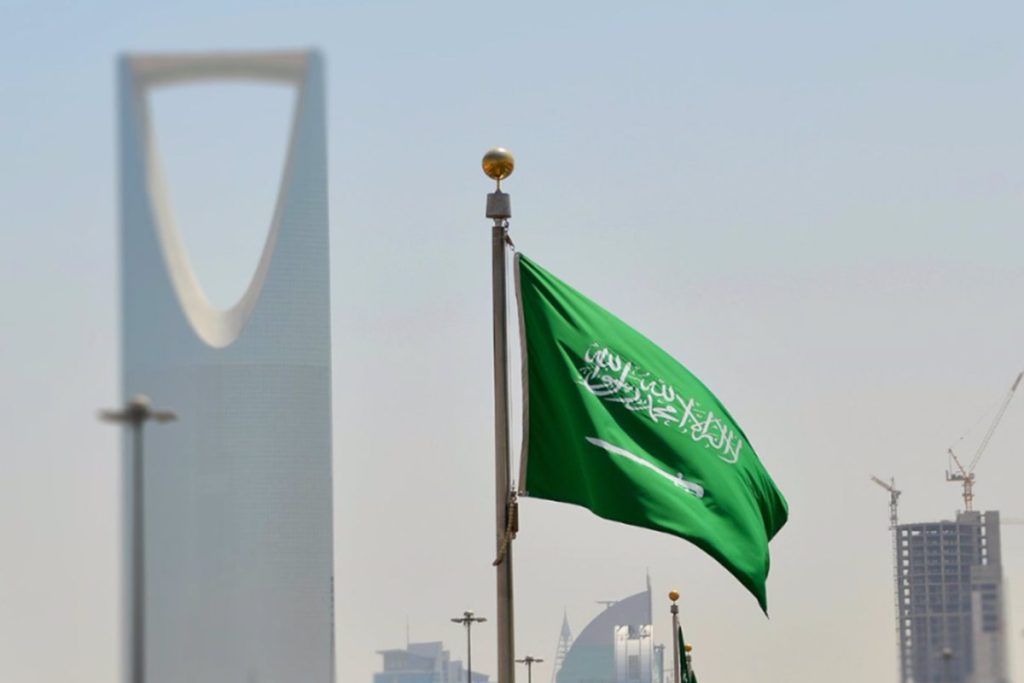+973 3373 3381
Phone Number
setupinsaudiarabia@gmail.com
Email Address
Mon - Thu: 8:00 - 5:00
Working Hours
Phone Number
Email Address
Working Hours
March 10, 2025

Saudi Arabia is experiencing unprecedented economic growth, fueled by Vision 2030, a government-led initiative to diversify the economy beyond oil and gas. This ambitious plan is creating new business opportunities in multiple industries, making Saudi Arabia one of the most attractive markets for entrepreneurs and investors in 2025.
If you’re looking to start a business or invest in the Kingdom, this guide will highlight the top business opportunities in Saudi Arabia for 2025 and provide insights into the most promising sectors.
Saudi Arabia is a business-friendly destination offering several advantages for investors:
✅ 100% Foreign Ownership – Many sectors now allow full foreign ownership.
✅ Tax Incentives & Business-Friendly Policies – Low corporate tax rates and reduced regulatory barriers.
✅ Growing Consumer Market – A young, high-income population with increasing demand for services and technology.
✅ Government Support – Vision 2030 initiatives provide funding, resources, and infrastructure for new businesses.
✅ Strategic Location – A gateway to GCC, MENA, and global markets.
With these advantages, Saudi Arabia offers lucrative business opportunities across various sectors.
We are committed to providing exceptional service and ensuring your long-term success in Saudi Arabia. Our team of experts will guide you through every step of the process, from initial consultation to post-incorporation support.
Saudi Arabia is at the forefront of the global renewable energy revolution, aiming to reduce dependence on oil and transition to sustainable energy sources. Under Vision 2030, the government has set ambitious goals to ensure 50% of its energy comes from renewables by 2030.
🔹 Solar Panel Manufacturing & Installation – Demand for locally-produced solar panels is increasing, creating opportunities for manufacturing plants and solar system integrators.
🔹 Wind Energy Projects – Saudi Arabia is developing onshore and offshore wind farms, opening doors for investors in turbine production and maintenance services.
🔹 Energy Efficiency Solutions – Businesses and households seek smart energy management systems, LED lighting solutions, and battery storage technologies.
✅ The Saudi Green Initiative is pushing for large-scale renewable projects.
✅ The NEOM City project is fully powered by renewable energy.
✅ The Public Investment Fund (PIF) is investing $50 billion in clean energy projects.
Saudi Arabia is rapidly digitizing its economy, leading to a booming IT sector with huge investments in AI, cloud computing, and cybersecurity.
🔹 AI and Machine Learning Startups – AI-driven solutions for finance, healthcare, and logistics are in high demand.
🔹 Cybersecurity Consulting Firms – Saudi businesses require advanced cybersecurity services to protect data.
🔹 Cloud Computing and SaaS Solutions – The rise of remote work and digital transformation is fueling demand for cloud-based software solutions.
✅ Saudi Arabia is expected to spend $24 billion on AI development by 2030.
✅ The country’s digital economy is projected to contribute $100 billion annually.
✅ NEOM’s smart city infrastructure requires cutting-edge tech innovations.
Saudi Arabia has one of the fastest-growing e-commerce markets in the MENA region, driven by high internet penetration and a young, tech-savvy population.
🔹 Online Fashion & Beauty Stores – The Saudi market has a huge appetite for luxury brands, cosmetics, and designer fashion.
🔹 B2B E-Commerce Platforms – Companies seek B2B digital marketplaces for bulk buying.
🔹 Last-Mile Delivery & Logistics Solutions – The rise of online shopping has created demand for efficient courier services.
✅ The Saudi e-commerce market is expected to reach $30 billion by 2025.
✅ The government is supporting digital payment adoption, making online retail easier.
With Saudi Arabia opening up to global tourism, the demand for hotels, entertainment, and travel services is skyrocketing. The Kingdom aims to attract 100 million tourists annually by 2030.
🔹 Boutique Hotels and Resorts – High demand for luxury, eco-friendly, and heritage hotels.
🔹 Cultural and Adventure Tourism Agencies – Interest in historical tours, desert safaris, and Red Sea diving trips is growing.
🔹 Food and Beverage Franchises – The restaurant industry is booming with a demand for international food brands.
✅ The tourism sector is projected to contribute 10% to GDP by 2030.
✅ Saudi Arabia is home to Giga Projects like The Red Sea Project, Diriyah Gate, and Qiddiya Entertainment City.
Saudi Arabia’s healthcare sector is modernizing rapidly, creating huge demand for private hospitals, medical tourism, and pharmaceuticals.
🔹 Private Hospitals & Specialized Clinics – The country needs more specialized healthcare facilities in oncology, cardiology, and pediatrics.
🔹 Medical Tourism – The Kingdom is attracting international patients for affordable, high-quality treatments.
🔹 Pharmaceutical Manufacturing – The government is encouraging local drug production to reduce reliance on imports.
✅ The Saudi healthcare market is expected to reach $50 billion by 2025.
✅ The government is increasing private sector participation from 40% to 65%.
Saudi Arabia is investing billions in smart cities like NEOM and The Red Sea Project, creating massive opportunities for real estate investors.
🔹 Smart City Developments – The demand for AI-powered infrastructure is increasing.
🔹 Commercial & Residential Property Investment – The need for luxury apartments, office spaces, and co-living spaces is growing.
🔹 Real Estate Technology (PropTech) – Platforms offering virtual property tours, AI-driven real estate analytics, and blockchain-based transactions are gaining traction.
✅ The NEOM City project alone is valued at $500 billion.
Saudi Arabia is on its way to becoming a cashless society, creating a thriving fintech ecosystem.
🔹 Digital Banking & Mobile Payments – Consumers are shifting to contactless transactions.
🔹 Cryptocurrency & Blockchain Startups – Saudi banks are exploring blockchain applications.
🔹 Investment Advisory Services – A growing middle-class population is looking for wealth management solutions.
✅ Fintech transactions are expected to exceed $33 billion by 2025.
Saudi Arabia’s push toward industrial self-sufficiency is creating new opportunities in manufacturing.
🔹 Automotive & Electric Vehicle (EV) Production – Saudi Arabia is investing in EV plants.
🔹 Textile & Fashion Manufacturing – The country is looking to reduce imports by boosting local production.
✅ Saudi Arabia aims to localize 50% of industrial supply chains.
Saudi Arabia is investing in EdTech and private education institutions.
🔹 E-Learning Platforms & Corporate Training – High demand for virtual learning.
🔹 International Schools & Universities – Parents seek premium education for their children.
✅ The EdTech market in Saudi Arabia is growing 15% annually.
With food security a priority, Saudi Arabia is embracing Agri-Tech and sustainable farming.
🔹 Hydroponic & Vertical Farming – Sustainable solutions for growing food in desert climates.
🔹 Smart Irrigation Technology – Efficient AI-driven water management for farms.
✅ Saudi Arabia aims to reduce food imports by 50% by 2030.


Selecting the appropriate legal entity is the first step when establishing a business in Saudi Arabia. Your choice will impact ownership rights, taxation, and operational flexibility.
💡 Ideal for: Medium to large enterprises, trading businesses, and service providers.
Ideal for: Large multinational companies and service-based firms expanding into Saudi Arabia.
The Ministry of Investment Saudi Arabia (MISA) is responsible for approving foreign business registrations and issuing investment licenses.
Different industries in Saudi Arabia require specific licenses and permits from sectoral regulators.
✅ Commercial License – Required for general trading and service businesses.
✅ Industrial License – Issued by the Ministry of Industry and Mineral Resources for manufacturing businesses.
✅ Professional License – Needed for consulting firms, legal professionals, and accounting services.
✅ E-Commerce License – Required for online retail businesses (issued by MOCI).
Industry-Specific Regulations: Some sectors, like healthcare, finance, and telecom, have strict regulatory requirements and require additional approvals.
To legally operate in Saudi Arabia, all businesses must have a corporate bank account. This is essential for:
Once your company is registered, you can recruit employees and sponsor work visas. However, businesses must comply with Saudi labor laws, including Saudization (Nitaqat System), which requires companies to hire a percentage of Saudi nationals.
✅ Work Visa Sponsorship – Foreign employees need to be sponsored by their employer.
✅ GOSI Registration – Employers must register workers under the General Organization for Social Insurance (GOSI).
✅ Saudization Compliance – Companies must meet required Saudi national employment quotas.
✔ Solution: Work with business consultants and legal experts who understand local regulations.
✔ Solution: Some sectors require a 51% Saudi-owned partnership – ensure you work with a reliable local sponsor who adds value to your business.
✔ Solution: Learning Saudi business etiquette, workplace customs, and negotiation practices will help build long-term business relationships.
✅ Yes! Many industries now allow 100% foreign ownership, including technology, healthcare, and tourism.
✅ The most profitable industries include:
✅ Business registration typically takes 2 to 6 weeks, depending on approvals and documentation accuracy.
✅ Yes! The Saudi government offers:
Do not hesitate to contact us. We’re a team of experts ready to talk to you.